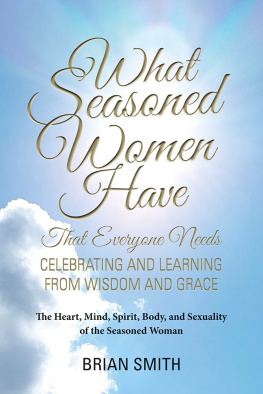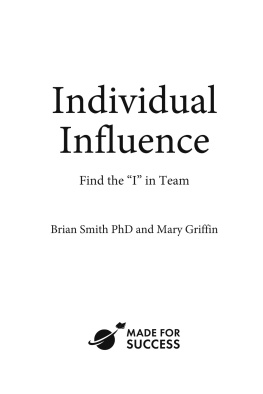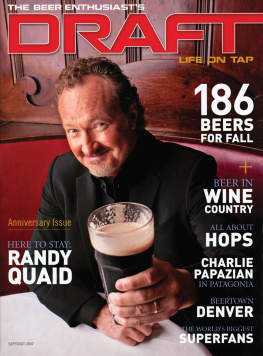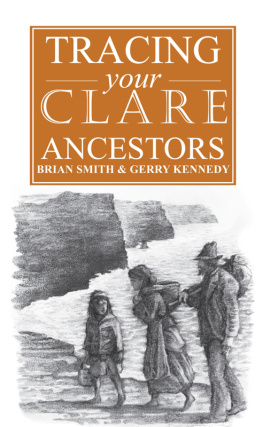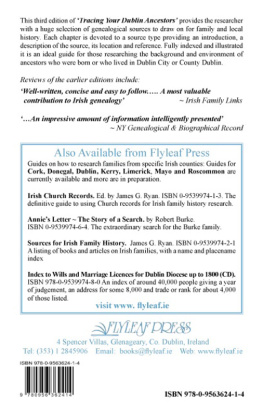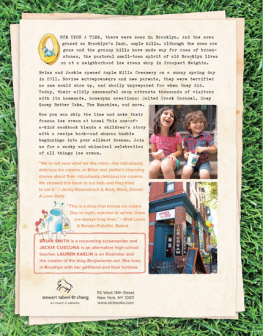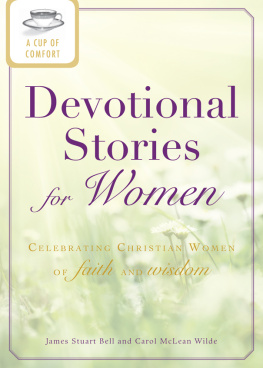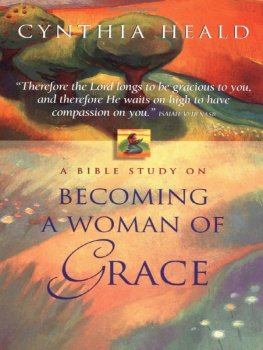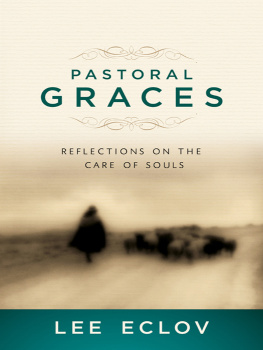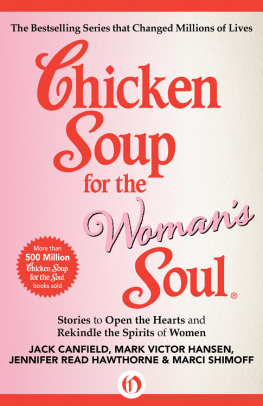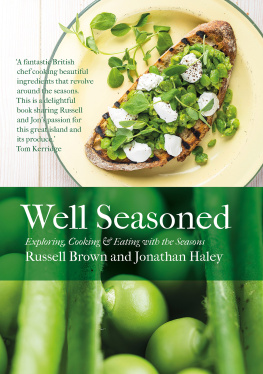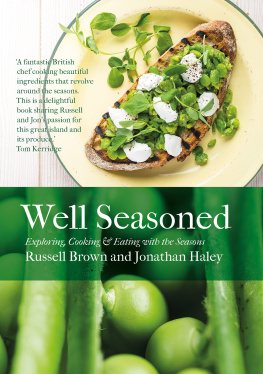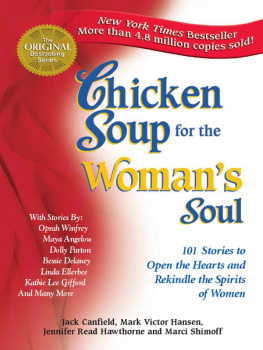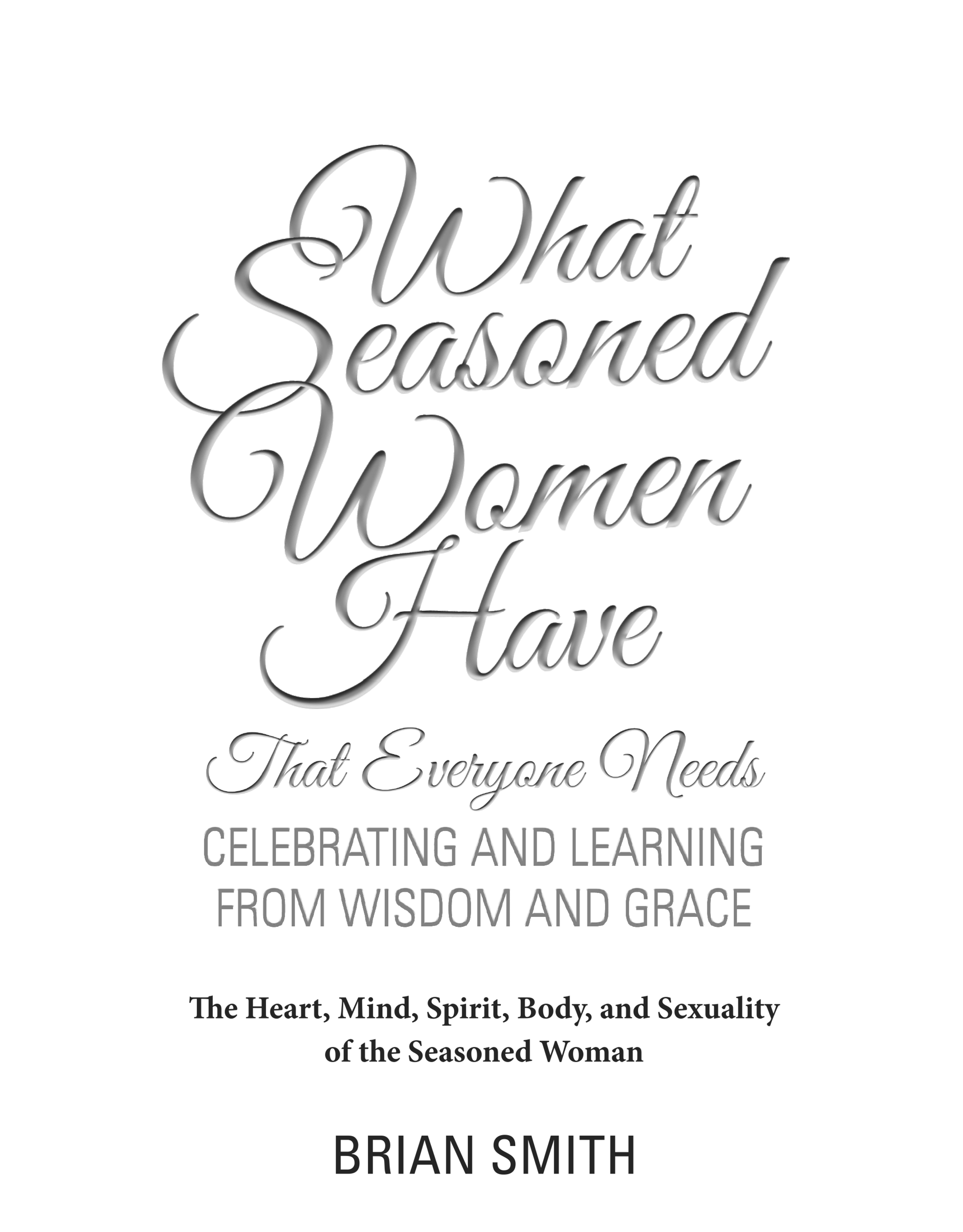To the Seasoned Women I have known, the real authors of this book.
Introduction:
Wisdom and Grace
This short book is written first and foremost to and for the Seasoned Woman. It is essentially a long essay expressing my sincere conviction that she is a treasure whose value is often underappreciated.
It is a celebration. Or, to say it another way, it is a love letter. A love letter to you, the Seasoned Woman. It speaks from the heart about what is real and what is true and what too often remains unspoken.
But this text is also written for anyone wise enough to learn from the example of the Seasoned Woman. Everyone needs her wisdom and grace, and anyone can benefit from understanding a bit better who she is.
To this end I have concluded Chapters Two through Seven with specific and practical ideals the Seasoned Women in my life have taught me to strive for suggestions that, if sincerely pursued, would lead us all toward a better world.
To make this distinction clear I have broken each chapter (starting with Chapter Two) into two parts: Celebrating and Learning.
Finally, we are currently living in perilous and disturbing times. We seem to have elevated the crudest of alpha males to lead us in what ought to be a quest for a better world rather than a hunt for riches and power. We could not have made a more profound series of errors.
To correct our course on this sad and destructive path, we clearly need the guidance of the Seasoned Woman. (And younger women as well those, in other words, on the path to becoming Seasoned Women.)
Most of Chapter One and all of Chapters Two through Five not only celebrate the Seasoned Woman but also provide a case for why we need her to assert her place in the public square, why the wisdom and grace that she embodies ought to govern our world.
***
I will not define you, the Seasoned Woman, within a precise age range. We all season at different rates. But you are surely not twenty-something or thirty-something. You might be forty-something or fifty-something or ninety-something. But you have been there and done that more than once.
In this text I will discuss five aspects of who you are: your heart, your mind, your spirit, your body, and your sexuality. And I will celebrate what it is about you that I find to be authentically beautiful, sexually compelling, intellectually appealing, spiritually fulfilling, and ultimately life-affirming.
My intention is to do all of this with appropriate respect for and humility toward that which I can never fully understand but wish not, as so many have, to misunderstand the Seasoned Woman.
What I know is that right now, at your age, the way you look and the way you are, for anyone who really looks at you and who really sees you, you are absolutely beautiful.
You are full of light. Full of softness. Full of strength. Full of the ideas and thoughts and experiences which have made you wise. Full of passion and compassion and love. Full of those parts of your spirit that can create joy, that can feel pain. Full of optimism and happiness in the face of the sorrows you have faced and the realities you know life presents to you.
You are that for which all the world yearns, though often it does not fully understand its own desires or needs. Which ought to include, near the top of the list you.
Of course, not every sentence in this book will apply to every seasoned female on Earth. But every example has been taken either directly from my own, personal experiences or from the experiences of individuals close to me. These experiences and my reading and research have taught me that while no one is perfect, there are more models among Seasoned Women than among any other group of people.
Clearly, the model and the examples are more common than rare. Essentially, we have all known the Seasoned Woman, and this essay reveals her truth.
Perhaps I have seen what some others have missed because I have taken the time and made the effort to see clearly and truly. And because, to paraphrase Antoine de Saint-Exupry, whom I will quote later, I have looked with my heart.
What I regret is that too often there are those who are blind to the treasures that lie before them. So perhaps my mission is simply to let you know that many of us have seen and have not just respected, but have appreciated who you are.
We are in your debt.
***
Regarding the names, anecdotes, and examples used here, they have been changed as necessary to protect the anonymity of the people whose stories I have shared.
Chapter One:
What Do We See?
What Do You See?
A 2009 study at the University of New Mexico Anderson School of Management found that, not surprisingly, most men feel that their bosses underestimate their job performance, while most women feel that their bosses over estimate theirs.
How do you see yourself?
A few years ago I was in a restaurant and while waiting for my meal I struck up a conversation with a woman sitting at the next table. She had hung something up on the wall in her bedroom, I dont remember what. But I remember what she said. Its helping me to accept with grace my body becoming disgraced.
She was a Seasoned Woman and was neither disgraceful nor disgraced in any eyes other than her own and those of the blind leading and following the blind, but I could see in the most powerful way how she had been absolutely convinced of her lack of beauty and grace.
And I was angry. Not at her, but at the forces which could so color perceptions of her, including her own. The forces that would attempt to convince all of us that signs of aging such as wrinkles are disgraceful. Because what I saw when I looked at her was a beautiful woman with wrinkles and grace.
What Do I See?
A woman I know told me of a time when she had worked in a nursing home. The patients were separated into wards by circumstances of health, ambulation, etc.
In one ward lived a man and a woman they were both very elderly. They had met in the nursing home several years earlier and had developed a beautiful, loving relationship.
Both the man and the woman were in reasonably good health, both physically and mentally. But neither had family available to give them the care they needed.
They were lovers, conversing, taking their meals, and participating together in whatever activities were available. They were, in a word, inseparable.
But the time came when the institution decided that, for whatever reasons, they must be separated. It scheduled him to move. She would remain where she was. Perhaps this was necessary. As my friend described it, it was not.
They were both absolutely heartbroken, distraught. They felt, I am sure, as husbands and wives of slave families must have felt in the pre-Civil War South. My friend spoke to the man one day, trying to console him in his grief.
He said, My Little Bird and I have been in love for years. Its not love like at twenty, but its tenderness and its just as big and just as strong. And now they want to separate us.
I would contend that their love was not only just as big and just as strong, but very likely richer and wider and deeper. In each of their cases they brought to the other multiple decades of living, learning, laughing, and loving along the long, winding paths of their lives, sharing qualities and experiences that manifest themselves not just in spirit, but in the embodiment of that spirit.
So when they met they each brought all of this to the table. She could still bring him wonderful pleasure, as a companion and as a woman , and she could still see him not only as a human being but as a lover , because they both looked less at the wrinkles and more at the grace.

